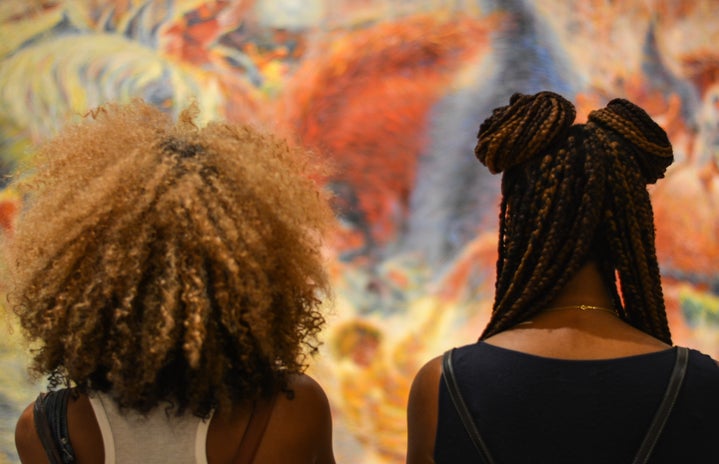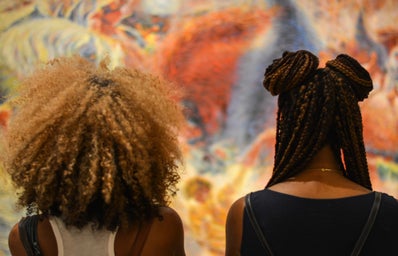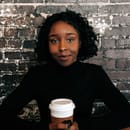Natural Hair in the black community has always been a highly contentious subject. For centuries it has been deemed “unattractive” or “too difficult to manage.” However, in the last decade, there has been a resurgence of interest in natural hair and how one should care for it. Nevertheless, attending a predominantly white institution (PWI) once again challenges the beauty ideals of black students, and they must once again find what that identity is.
Below is a continuation of an open, candid conversation with my friend Brielle-Ann Michel about what it is like to attend a PWI with natural hair. We share some of our struggles, insecurities, and hopes for progress. The suggestions and comments are solely our opinions and in no way should be construed as the general feeling of the black community on campus.
Tahjanee Givens: Going back to my original point, I think there is so much negativity associated with head wraps. People think like, “Oh, they’re hiding something,” or they try to make assumptions about what may be underneath the head wrap. They assume that you don’t have a lot of hair or you’re ashamed of what’s underneath.
Brielle-Ann Michel: That’s the thing! They always say, “Oh, you’re probably “bald-headed” underneath that.” But, no, it’s a style. This is how I choose to wear my hair.
TG: I think in the black community, having long hair is just such a sense of pride. It’s really a symbol of status too. Tracing it back to slavery, the longer your hair was, the closer you were to…
BM: You’re closer to… well I don’t want to say long hair equates to white people, but…
TG: But in a sense, it was associated with that heavily during that time period, and I think it’s something that has persisted through the generations. For black people, especially those who have darker skin and coarser hair, people think that we can’t grow long hair, but if my hair has super tight curls, of course, it’s going to look shorter than someone’s straight hair. So from a young age, we’re taught that if someone has long hair then they need to flaunt it because it shows how much closer to the white beauty standard they are. In reality, I wear my hair how I want to, and I wear my hair in the way that’s best for me.
BM: After coming to college, I realized that I don’t care at this point. I don’t care if I wear a head wrap. That doesn’t mean that I don’t go through periods where I feel uncomfortable or insecure about it, though. You don’t see a lot of black people around campus rocking the short hair look. If girls do wear their natural hair out, it’s either super long, or it’s up in braids. I don’t think I’ve ever seen a person rocking a TWA (teeny weeny afro) around campus. It just feels like there’s a standard that the only beautiful hair is the hair that is really long.
TG: Yea, that’s something I’ve definitely noticed a bit too. When I look at other people, and I see they have short hair, it’s not something I judge or see as ugly. I used to have short hair, too, right after I did my big chop. If anything, my hair was maybe a few inches off my head. Now in my hair journey, I’m at a point where I do want to grow my hair out a bit, but not because I feel pressured to, but because it’s something that I’m doing for myself, and it’s my journey.
BM: Whenever someone has short natural hair, they always try and call them “bald-headed” as an insult when it really shouldn’t be. How much hair people want on their heads is totally their choice and not something they should be judged for. Personally, my hair journey is all about growing healthy hair at this point. I have been having a lot of issues with split ends lately so really just getting my hair to its healthiest state is what I’m working towards.
[to be continued…]



